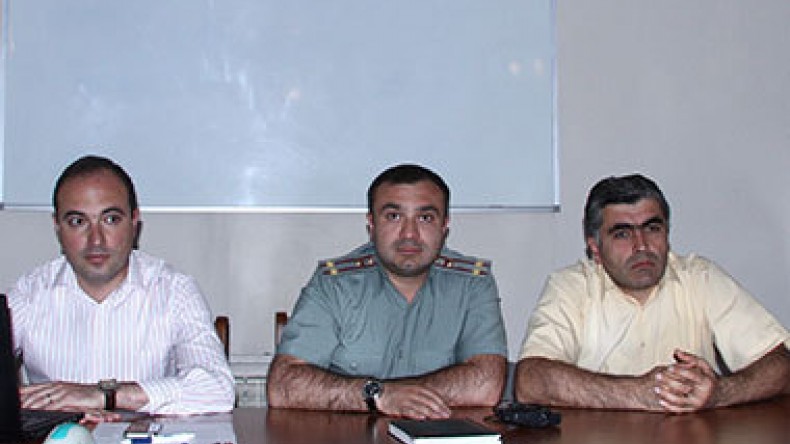
Expert: Effectiveness of probation service in Armenia depends on stakeholders
Several new types of punishments alternative to imprisonment will be introduced in the new Criminal Code of Armenia, such as restriction of liberty, deprivation of parental rights and deportation. The First Deputy Chairman of the Chamber of Advocates of Armenia Artur Hovhannisyan elaborated about this in an interview.
He underlined that presently only the concept paper of the new Code is approved, based on which the draft of the Criminal Code will be further elaborated.
According to Hovhannisyan, new types of punishments will work together with those alternative punishments that exist today: fines, social work and deprivation of rights from filling certain posts or carrying out certain activities.
“Among the new types of punishments, in case of restrictions of liberty, the offender won’t be allowed to appear in certain places. It’s not an imprisonment, he won’t be kept in the penitentiary facility, yet some of his rights will be restricted”, - the expert said.
Deportation fill be faced by those alien offenders who violated the law in Armenia. Instead of being sent to penitentiary facilities, they will be deported from the country.
Answering the question whether or not the probation service will undertake the same function as alternative penalty service, the expert explained: “Of course, there are risks. The effectiveness of the probation service doesn’t only depend on the probation service, its staff or the Ministry of Justice, which will have the probation service in its institutional frameworks. In order for the service to function properly, all stakeholders, such as the court or the investigative body, should cooperate. It depends whether they would at all utilize the probation service, would submit motions to get personal reports or not”.
According to the probation service concept paper, at the pre-trial stage the investigative body presents a motion to the probation service, at its own discretion, soliciting a personal report about the person accused, in order to determine the preventive measures. The investigative body is not obliged to present a motion to the probation service for the pre-trial report on the person.
Today a seminar was held for the Unit of execution of alternative punishments of the Ministry of Justice in the frameworks of “Assistance in creation of probation service in Armenia” project. Martin Seddon (United Kingdom), who has been working in probation sector for 17 years, made a presentation for the department’s employees how the probation service works in his country, and what assets shall a probation serviceman possess.
The introduction of probation service in Armenia is anticipated in 2016.
The establishment of probation service in Armenia is supported by the Council of Europe. The project manager of “Assistance in creation of probation service in Armenia” Hayk Khemchyan said that a separate event on the probation service will start tomorrow.
“It’s impossible to cover all the outstanding issues during one, two or three-day seminars, but I believe that little by little we’ll become more confident about the work we are going to do,” he said.
Newsfeed
Videos






























